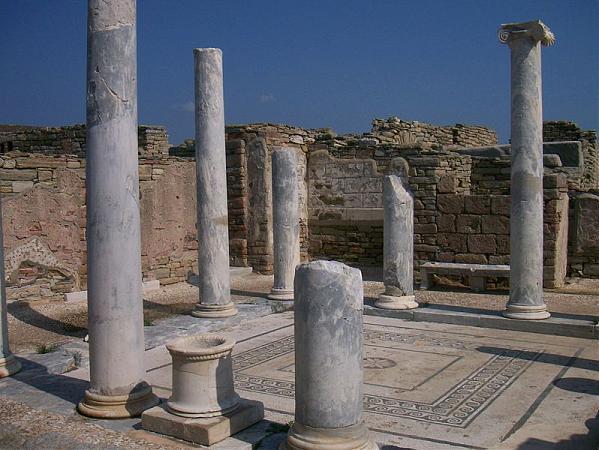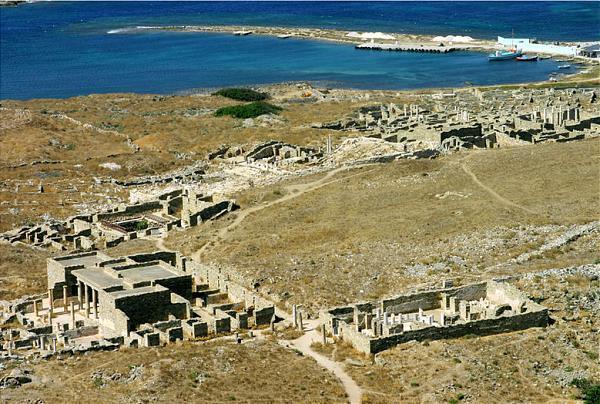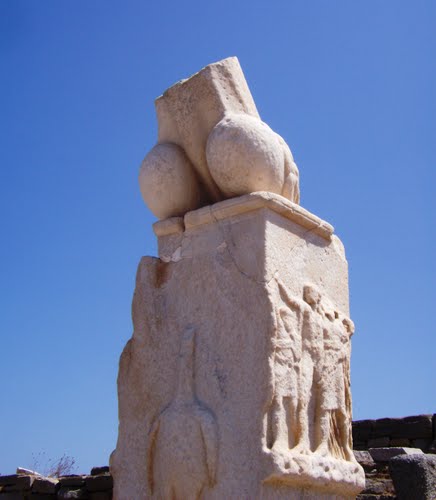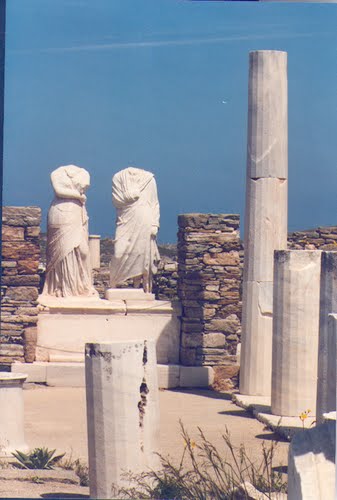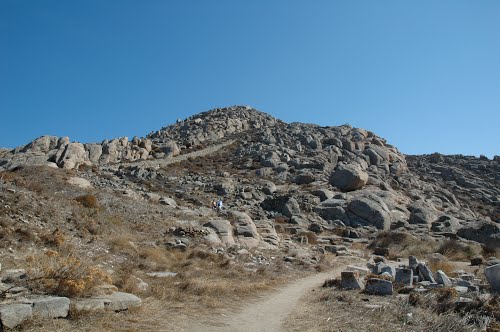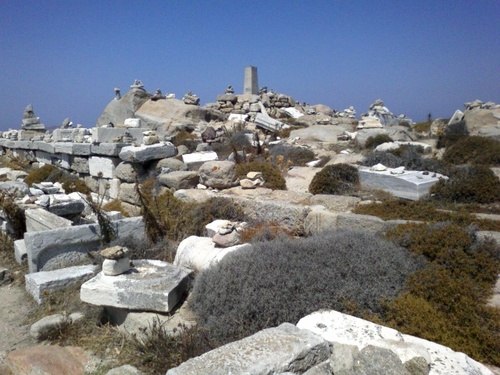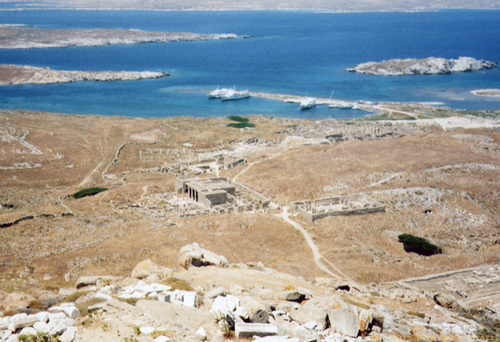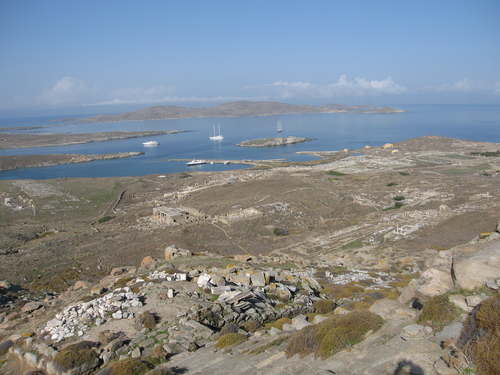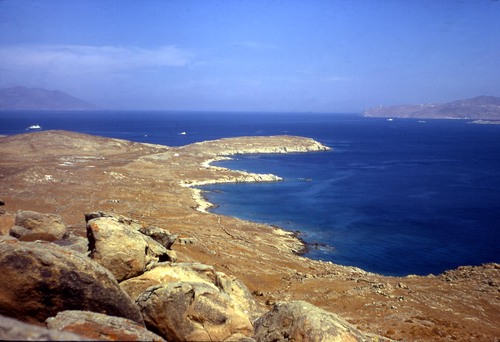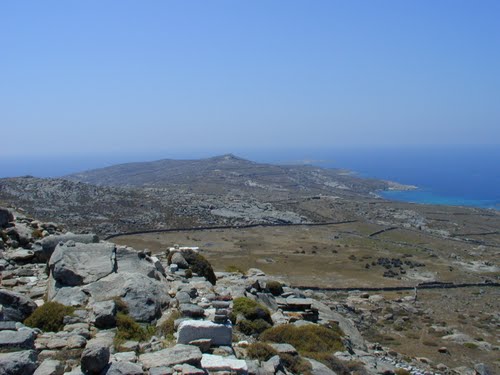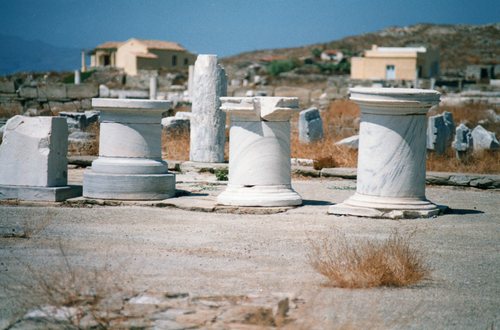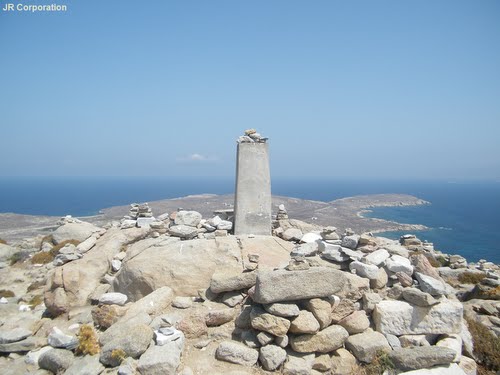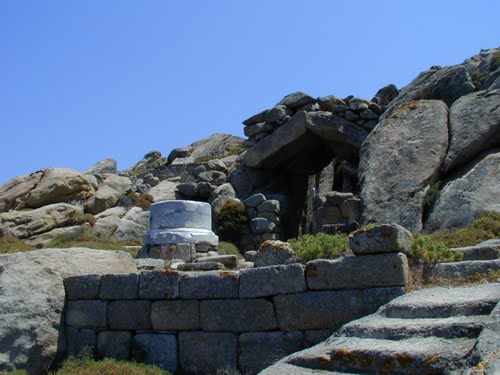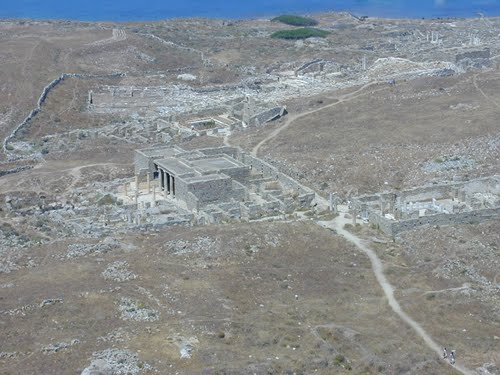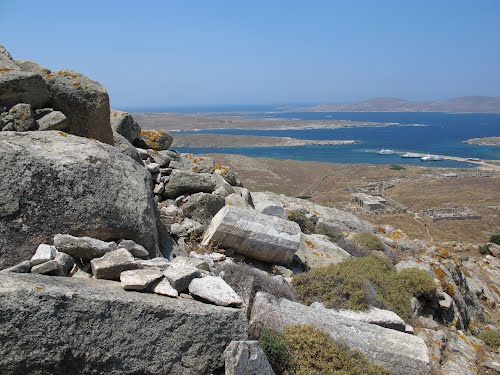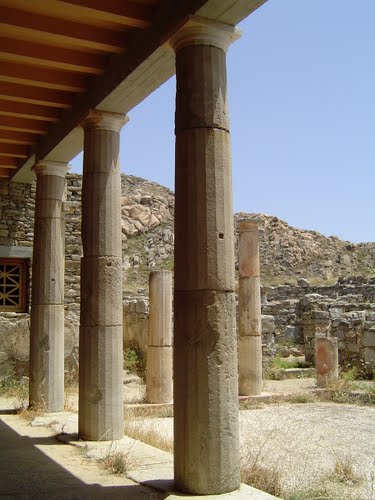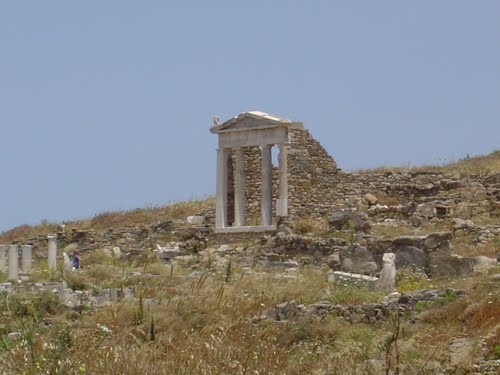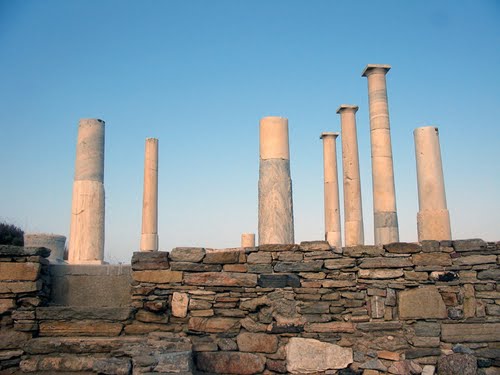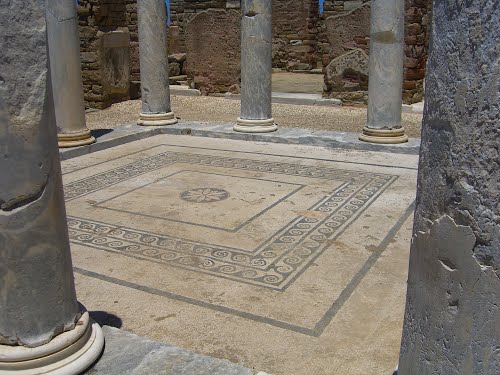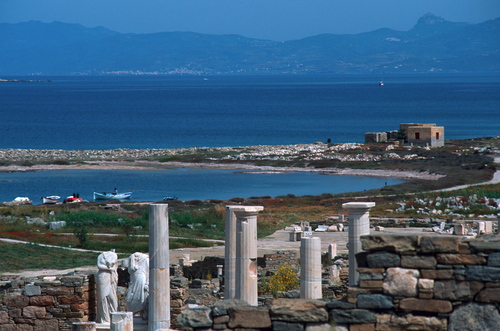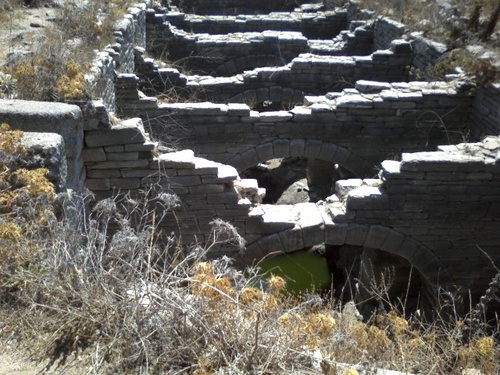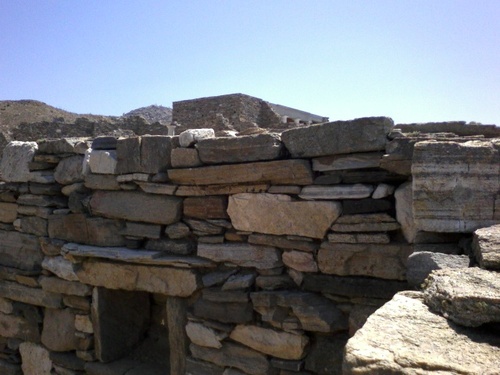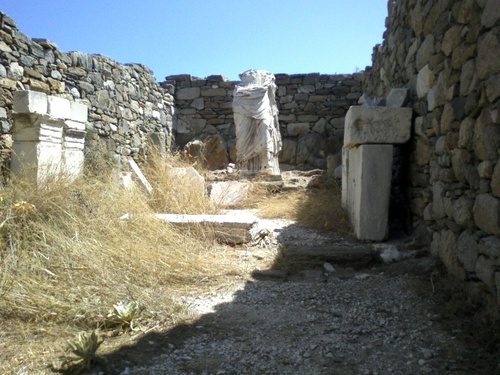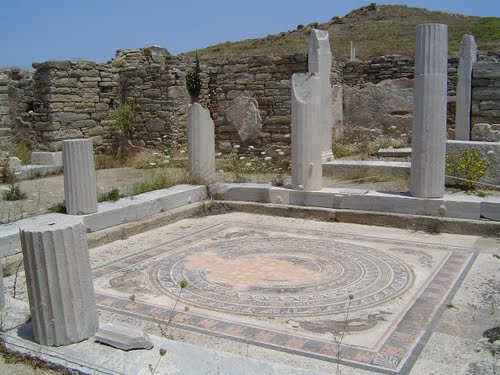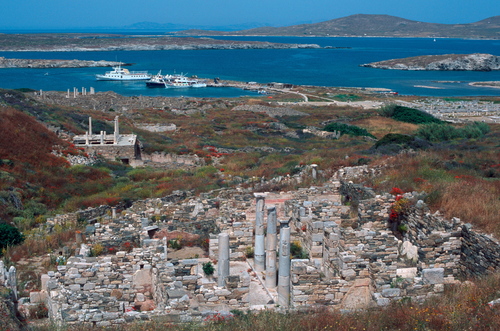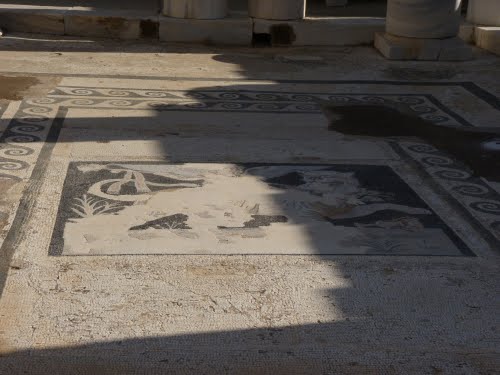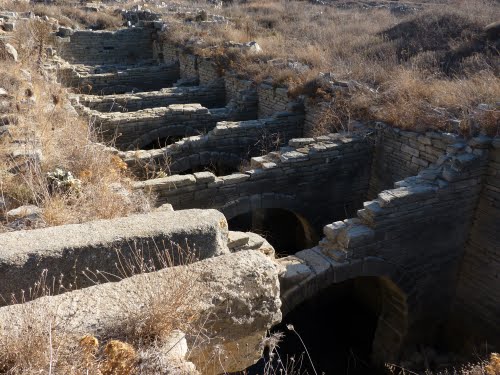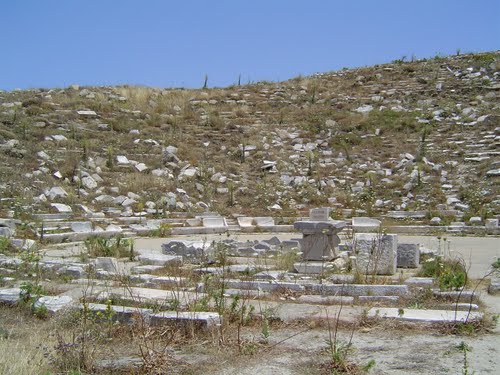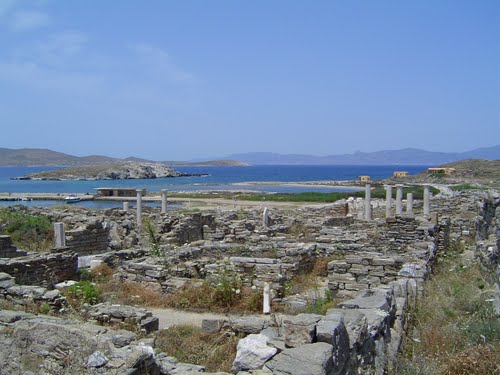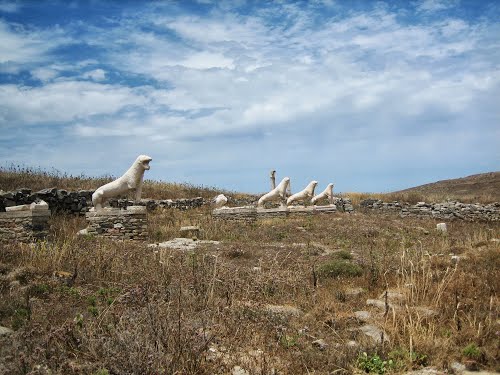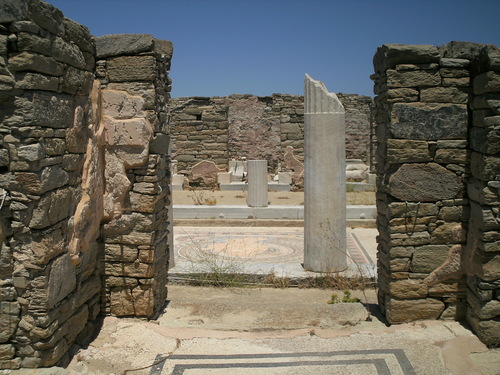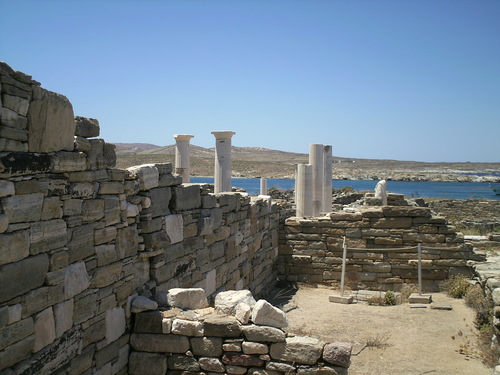The island of Delos, near Mykonos, near the centre of the Cyclades archipelago, is one of the most important mythological, historical and archaeological sites in Greece. The excavations in the island are among the most extensive in the Mediterranean; ongoing work takes place under the direction of the French School at Athens and many of the artifacts found are on display at the Archaeological Museum of Delos and the National Archaeological Museum of Athens.
Delos had a position as a holy sanctuary for a millennium before Olympian Greek mythology made it the birthplace of Apollo and Artemis. From its Sacred Harbour, the horizon shows the two conical mounds (image below) that have identified landscapes sacred to a goddess in other sites: one, retaining its pre-Greek name Mount Kynthos, is crowned with a sanctuary of Zeus.
Established as a culture center, Delos had an importance that its natural resources could never have offered. In this vein Leto, searching for a birthing-place for Artemis and Apollo, addressed the island:
Delos, if you would be willing to be the abode of my son Phoebus Apollo and make him a rich temple – for no other will touch you, as you will find: and I think you will never be rich in oxen and sheep, nor bear vintage nor yet produce plants abundantly. But if you have the temple of far-shooting Apollo, all men will bring you hecatombs and gather here, and incessant savour of rich sacrifice will always arise, and you will feed those who dwell in you from the hand of strangers; for truly your own soil is not rich.
- Homeric Hymn to Delian Apollo 51–60

